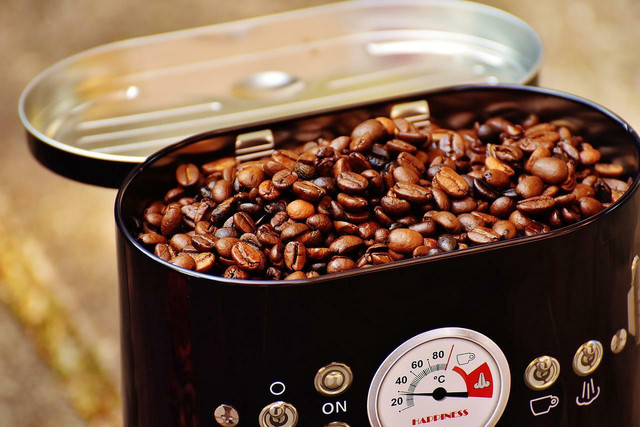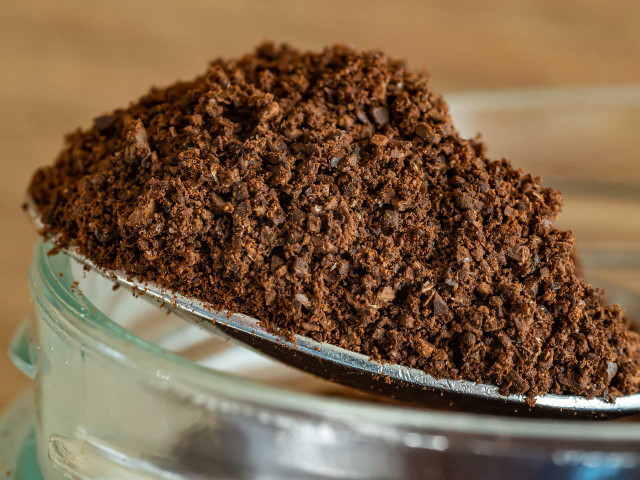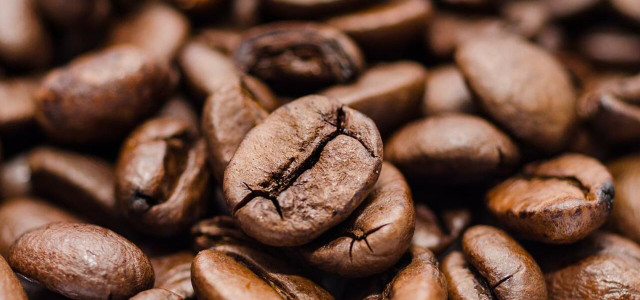Ever wondered whether you can freeze coffee? Follow this sustainable guide and find out how to store beans, pre-ground and brewed coffee that won’t impact its taste while reducing unnecessary waste.
Can You Freeze Coffee?
The answer is yes!
Room temperature coffee will begin to lose its freshness and aromatic flavor and smell after two weeks. For those of us who can’t quite get through a whole bag of coffee within two weeks, learning how to freeze coffee is a practical way to store and preserve that rich coffee flavor.
For coffee lovers, stale coffee is a real no-go. When fresh coffee comes in contact with air, the cell structure of the coffee begins to degrade through chemical reactions caused by the carbon dioxide in the air, making the coffee stale. To avoid stale coffee, freezing coffee beans, pre-ground coffee and even brewed coffee, is a practical and sustainable choice.
When defrosting your coffee, remove how many portions you need for the week and place them in a dry and dark shelf to thaw. Grind and brew the coffee within two weeks for the best flavor.
Does Freezing Coffee Impact Its Taste?
Every time you open your freezer door, the temperature fluctuates, which negatively impacts the taste of your coffee. Light always impacts your coffee, not only in the freezer, which is why the best way to store coffee beans is always in an opaque container.
In order to preserve the coffee’s flavor and taste when freezing, make sure it is in contact with air and light as little as possible. Do this by dividing large amounts of your coffee into separate airtight canisters and storing them in the freezer shelf you use least (so for example not the shelf with the ice cube trays which tends to be opened more regularly).
You should also check that all other foods in your freezer are tightly sealed, especially the ones near the frozen coffee, as it readily absorbs all other flavors otherwise.
How to Freeze Coffee Sustainably

(Foto: CC0 / Pixabay / Alexas_Fotos)
Many recommend storing coffee in the freezer using sealable plastic bags. However useful and effective plastic bags are in locking in the fresh flavor and taste of coffee, they are not environmentally friendly. Thankfully, there are more earth-friendly ways you can safely store your coffee in with the same effect as sealable plastic bags. Reusable containers or canisters are the best as they limit the coffee’s contact with oxygen and moisture. Find an airtight, opaque container for the most effective coffee-freezing method.
How to Freeze Coffee Beans
When buying a large bag of coffee beans that you can’t consume within two weeks, it’s best to immediately freeze the beans to conserve their flavor. Ideally, you freeze the beans before you grind them, or brew the coffee.
- Divide your fresh coffee beans into a week to two-weeks worth of cups of coffee (so you can remove them from the freezer separately later).
- Store your coffee beans in separate airtight containers that you fill up almost completely to avoid freezer burn.
- Store your coffee beans in the least-used draw of your freezer to limit their contact with light and air fluctuation.
- For the freshest coffee, store in the freezer for two weeks. However, frozen coffee beans can be stored in the freezer for up to two months.
- To defrost your frozen coffee beans, remove the amount needed and thaw on a dry and dark shelf.
- Never return thawed coffee beans back to the freezer, as this will really hamper with the flavor.
How to Freeze Pre-Ground Coffee Beans



(Foto: CC0 / Pixabay / martin_hetto)
Coffee is best frozen as whole beans. However, if you’ve already ground your coffee or usually buy pre-ground, it’s not too late to save its fresh taste for later:
- Using airtight containers or canisters that are freezer-safe, divide your pre-ground coffee into one to two weeks worth of cups of coffee.
- Store your coffee beans in the least-used draw of your freezer to limit their contact with light.
- Pre-ground coffee can be stored in the freezer for up to two months.
- Simply remove the canisters of frozen ground coffee the evening before you plan to use them, and let them thaw on a shelf.
Tip: If you find the thawed coffee powder lost their taste after all, don’t throw them out just yet! Here are 7 sustainable home and garden uses for coffee grounds.
How to Freeze Brewed Coffee



(Foto: CC0 / Pixabay / JASONBON)
Sometimes you’ve brewed the coffee only to find you can’t drink it all in one go. As warmed up coffee doesn’t usually taste too good, freezing is a great option to reuse it lateron.
- Pour your brewed and leftover coffee into ice cube trays and place in the freezer for several hours before the cubes have completely frozen.
- Store your frozen brewed coffee cubes in the ice tray for up to a month.
- To defrost your frozen brewed coffee, remove from the freezer and place in the fridge to thaw. Avoid putting frozen coffee cubes in the microwave as this will really hamper with the flavor of the coffee.
This option admittedly won’t make for the most delicious coffee if you warm it up again, so great uses for frozen brewed coffee cubes include:
- Enjoying them in homemade iced coffee, or an iced dirty chai latte
- Dropping one into your hot coffee to cool it down without diluting it with water
- Adding it to a morning smoothie for a caffeine kick
- Enriching chocolate desserts like vegan brownies, or savory dishes like a vegan chili, or a vegan barbecue sauce or marinade
https://utopia.org/guide/cold-brew-coffee-recipe-how-to-make-at-home/
Importance of Fair and Organic Coffee
Coffee farming is an industry that has for years been plagued by unfair, unethical and unsustainable labour and production practices. From large-scale farming, to forced immigration, the coffee industry has a real dark side. That is why it is really important to buy Fairtrade and Organic Coffee.
Fairtrade coffee ensures that the small-scale, local farmers growing the coffee receive a fair and legal price, that environmental standards are met and that the community and environment in which they live are protected and benefited as well.
Certified organic coffee is produced using renewable resources that conserve water usage and protect the soil, as well as recognize and encourage the sustainable conservation of wildlife. Organic coffee farmers do not use harmful pesticides or fertilizers that can damage the natural environment as well as the workers themselves.
So next time you are restocking on your coffee supply, remember to look out for the certified fair and organic label, and don’t buy in bulk, but rather try and stick to the amount of coffee you will drink within two weeks.
Try out these 10 coffee substitutes in order to discover a regional, caffeine-free, healthier, or less ecologically problematic alternative to coffee.
Read more:
- How to Freeze Soup: Methods, Tips and Tricks
- Cacao vs. Cocoa Powder. What’s the Difference?
- Review: These Reusable Nespresso Pods Make Better Coffee
Do you like this post?






